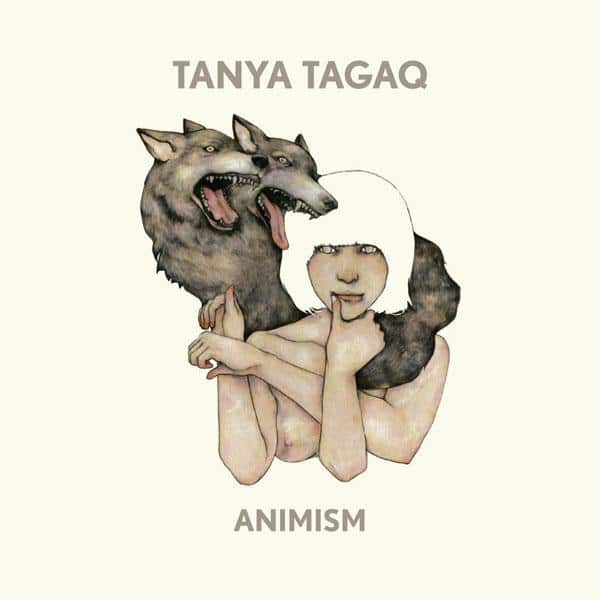 A review of Tanya Tagaq’s Animism.
A review of Tanya Tagaq’s Animism.
Record stores or iTunes might try to categorize her music under folk, vocal, or the catch-all “world music,” but acclaimed Canadian throat singer Tanya Tagaq certainly isn’t tied down by labels. While you won’t find her on the MuchMusic Video Countdown, Tagaq has more than broken free of the space normally given to Aboriginal artists in Canada.
Since releasing Animism in May 2014, she has been shortlisted for the Polaris Music Prize alongside popular Canadian artists such as Drake and Arcade Fire. Born in Cambridge Bay in Nunavut, Tagaq manages to bring Inuit throat singing out of the Arctic without losing the meaningful cultural context that gives her music so much life.
While the majority of the album lacks lyrics, Animism’s focus on the natural world is apparent throughout every track. The title of the album refers to the belief that humans, plants, animals, and inanimate objects all have souls or spiritual essence. Many of the tracks reflect this unifying theme, as many of the titles are animal names, in either English or Inuktitut. In an interview with Jian Ghomeshi for the CBC radio program Q, Tagaq spoke to this belief and its relation to her album: “It’s us that belongs to the earth, not the other way around.”
Listeners unfamiliar with throat singing will be gently guided into the experience on the first track on the album “Caribou.” A cover of the 2004 single from American alt-rock
group The Pixies, Tagaq combines the melody and lyrics of the original song while incorporating throat singing into the piece. Tagaq’s overlay of violins, guitars, and synthesized instrumentals with a traditionally a cappella performance is what makes her music truly unique.
Another standout track on the record is “Umingmak.” Inuktitut for “muskox,” this track blends electronic sounds with Tagaq’s entrancing vocals, making it clear why her music is often called ‘Inuk Punk.’ Six Shooter Records used this track for the album trailer accompanied by visuals that depict a chase between animals in the snowy Arctic landscape. Flashing between Tagaq as a muskox, her “human form,” and then as a seal, the 90-second trailer encompasses Tagaq’s vision of the fluidity and interconnectedness of human and non-human entities.
Though throat singing is a practice found in many cultures around the world, Inuit throat singing is unique in that it is traditionally done in pairs. Unlike Tuvan or Tibetan throat singing, the Inuit tradition utilizes short bursts from deep in the throat, and is often performed as a duet or a contest between two singers. Though this practice has been around for many generations, Tagaq did not grow up throat-singing; rather, it was something she started after moving away from Nunavut, looking for something to make her feel closer to home.
In addition to the album’s musical depth and complexity, Tagaq’s presence in the Canadian music scene is incredibly important during a time when representations of Inuit culture are often misconstrued by stereotypes and traditional Aboriginal land continues to be viewed as a resource to be exploited. Dr. Marilyn Walker, a professor in Mount Allison’s Department of Anthropology, has
conducted research that has taken her to Northern Canada where she has worked with Inuit peoples. In an interview, Walker noted Tagaq’s cultural relevance to Canadian music: “[Tagaq’s] work is important because it takes a traditional Inuit practice into the contemporary context.”
Walker also said that Tagaq has been able to take her music out of the exclusively Aboriginal category and into the broader Canadian or even global context, by mixing orchestral instruments with the traditional vocal style. In this way, Tagaq’s music combines a strong political statement and an assertion of Inuit culture with a unique style of music that all Canadians can enjoy.
Tagaq’s contributions to Canadian cultural discourse are not just limited to her work as a throat singer. Sparked by Ellen DeGeneres’ donation to the Humane Society in opposition to seal hunting in Northern Canada, Tagaq participated in the resulting ‘#Sealfie’ movement in an attempt to debunk myths and misunderstandings regarding Inuit seal hunting and defend them as environmentally sustainable and essential to Inuit cultural identity.
Tagaq has recently announced dates for her upcoming Canada-wide tour this fall, including an appearance at the Halifax Pop Explosion festival on Oct. 25.





